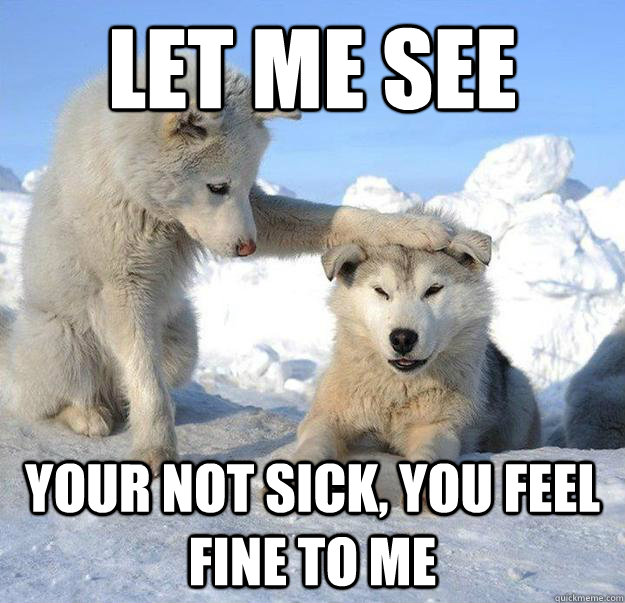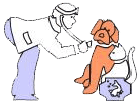I know a great many of our clients visit the internet before and after visiting the clinic for a medical condition with their pets. I’m certainly not going to tell you on this blog not to do it. Heck, I even do it when I go to the doctor. That said, I do see a few pitfalls in surfing the web for pet medical advice that can possibly be avoided. That is what I will talk about today.
Overlapping Symptoms

In veterinary medicine, many different illnesses will cause very similar symptoms that the owner will see. This high level of overlap can cause either an unnecessary panic or not enough concern for a given problem when Dr. Google makes a pronouncement.
Take vomiting for instance. Almost every illness we treat can cause vomiting. Recently, I had a client come in very upset because his dog vomited once and his Google search proclaimed that vomiting was a sign of cancer. While technically true that cancer victims can vomit, it is also a sign of getting in the trash, (which the dog did) and his dog proved to be just fine.
Questionable Sources

There are some sources that are quite good. I include a couple at the end of this entry. There are also many others that are notably less so. The problem with the internet is that you can find a statement supporting almost anything. Between breeders, trainers, pet product sellers, “alternative” medicine proponents, and many others, there are lots of folks out there with an agenda pontificating their viewpoint.
This overload can lead owners away from a straightforward solution that will work easily. It is disheartening to see unnecessary suffering in a patient when the caretaker follows some fringe advice instead of proven methods.
Asking The Right Questions

Since our patients cannot directly tell us what is wrong, the owner is often left guessing what to put into an internet search. They may think they are putting in a suitable keyword but in actuality are not. This can result in search results that are confusing or incorrect. The result may cause the unnecessary panic mentioned earlier of an overly dire pronouncement.
Getting Bogged Down In Terminology

Sometimes, the information presented in a search may be perfectly accurate and helpful but may be written in such a way as to confuse the reader, especially if she does not have medical training. I find this is a fairly common occurrence. If there are questions of this type, feel free to call us and we can help.
Starting With Incorrect Assumptions

One way an owner can be sent down an incorrect Google path is by making or having someone tell him a starting assumption that is a misinterpreted symptom.
The result is a faulty search.
For instance, when dogs rub their bottoms on the ground (scooting), in spite of what Uncle Verl says, it is NOT a worm infestation. It is actually an anal sac (anal gland) problem about 96% of the time. However, if the owner assumes that Uncle Verl is correct, they will search up “worms” and its treatment and waste a bunch of money subjecting their dog to unneeded worming medications that Google said to get. Several other conditions are similar to the above example and result in the owners doing unneeded stuff to their pet.
Talk To Your Local Veterinarian

The best solution is good communication with your vet. If confused by a specific item or diagnosis, ask us to explain it better until it is clear. Ask us to write out a diagnosis so a search can be accurate. Don’t be afraid to ask questions in person. We should be able to fill in the gaps that Dr. Google invariably misses and make everyone feel good about the treatment options that are done. Happy surfing!
Helpful links:
http://www.veterinarypartner.com
http://www.petplace.com
https://www.lapoflove.com
 All About Pets
All About Pets 

